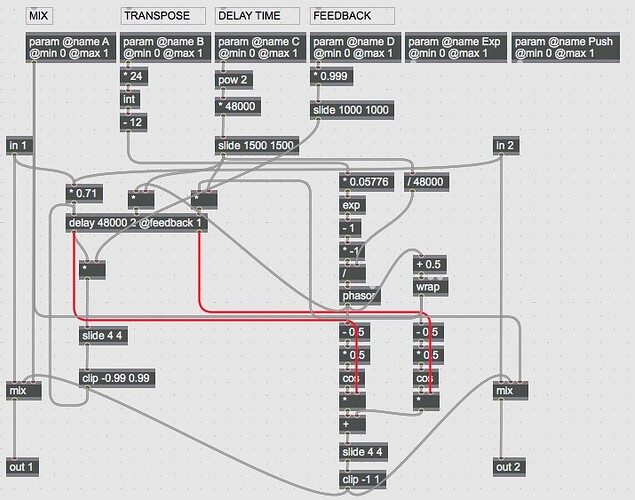I made a pitch delay patch in gen (bit like the factory pitch shifter but including feedback).
It runs fine in maxmsp gen as well as “ok” compiled in browser (pitch slightly off there), but as soon as it arrives on my OWL pedal transposing really sounds like running on samplerate 44.1 KHz instead of 48KHz.
I checked against all kinds of possible other errors, in standalone mode as well as connected to USB/OwlControl
Can someone else check if that error persists on another OWL?
My pedal is v12.
Try the browser patch with transpose turned all the was up, result in an octave, and about center position results in 0 transpose.
The same on my OWL is off, the center is missing (either too high or too low).
Both extremes are off as well, -12/far left is a little too low, +12/far right is much too low, though comparing to a 44.1/48 mismatch it isn’t quite there, only similar.
To me it looks like a compiler error, as the browser version runs fine.
Thank you and aswell to your suggestions.
P.S.:Gen patch
